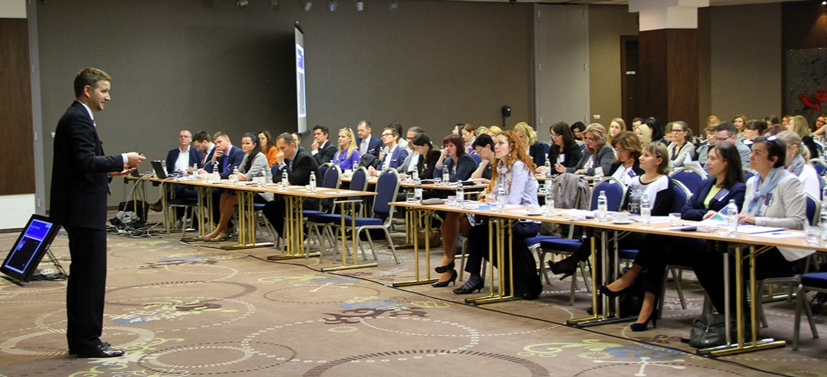Supporting Graduate Students' Academic and Professional Success

The ability to find new research topics is an essential skill that should be obtained before you achieve your doctoral degree. It is, however, universally acknowledged that finding a new topic for your research is not easy. Rarely, professors may ask whether you are interested in some specific topics. If yes, you may be assigned to those specific topics and not need to find your dissertation topic on your own. The majority of the time, on the other hand, professors require you to develop some topics you can work on and then work with you to select one of the topics as your dissertation topic. Below are some tips that will help you as you develop new research topics.
1. Seek out collaborators from different disciplinary backgrounds
[Image Description: A group of five people gathered around a round table all working together on a project.]
When you have no ideas about research topics in your own discipline, you can open your mind to other research fields and look for cross-functional collaboration. For example, for scientific students, you may apply your existing methods to other fields; while for education students, you may look for some scientific methods to prove that your suggestions are reasonable and have the capacity to be implemented in society.
2. Participate in related seminars
Departments offer regular seminars each quarter. Our campus also offers select workshops open to the whole campus. Please do not limit yourself to listening to seminars in your own professional department. Different fields sometimes bring you more opportunities for building on innovative ideas. Try to participate in as many seminars as you can, not only to find new ideas but also to stay ahead of advanced technologies. Through seminars, you can have discussions with presenters about their projects. Through these discussions, you may find new ideas about how to develop your own interesting topics. You may even notice that some of the projects presented may have limitations; then it's your turn to build a new model to overcome those limitations.
[Image Description: A speaker stands in front of a group of students to give a lecture.]
3. Reading to equip yourself with new topics and advanced technologies
Read at least two to three papers per week. If that sounds like a lot, don't worry! you don’t need to read every paper carefully. Quickly scan the paper the first time you go through it. If you can find points you are interested in, then you spend more time reading the paper more closely. After a second reading, you should fully understand how the author studies their topic and if there any improvements you can make based on the paper. If there are improvements you can create or you can use the methods in different problems, then you can try to develop your research based on the paper.
4. Identify a general topic you are interested in or ideas you already have
Good projects are done in a replicable or sequenced way. If you have no ideas at all, you can recall the courses or projects you were interested in when you were an undergraduate or early graduate student. Then try to improve or enrich your new research topic based on your existing projects. For example, when you were an undergraduate, the methods you applied to a project may have had limitations that you can now either improve on or develop a new algorithm to overcome. Additionally, you may even be able to apply your existing methods to some young fields.
5. Develop your research topic based on social phenomenon
[Image Description: A hillside on fire.]
Although the public often emphasizes the benefits of a college degree for graduates themselves, the benefits to society are just as important. You may investigate social phenomena and through research find a new way to improve societal problems. For example, recently there have been many fires in the mountain spread all over California. Various projects can be done drawing on this situation. For instance, biological scientists can investigate how these fires affect wildlife. Statisticians can work on how to predict and avoid this tragedy in the future. Social workers can work on how to protect people’s lives during this tragedy.


